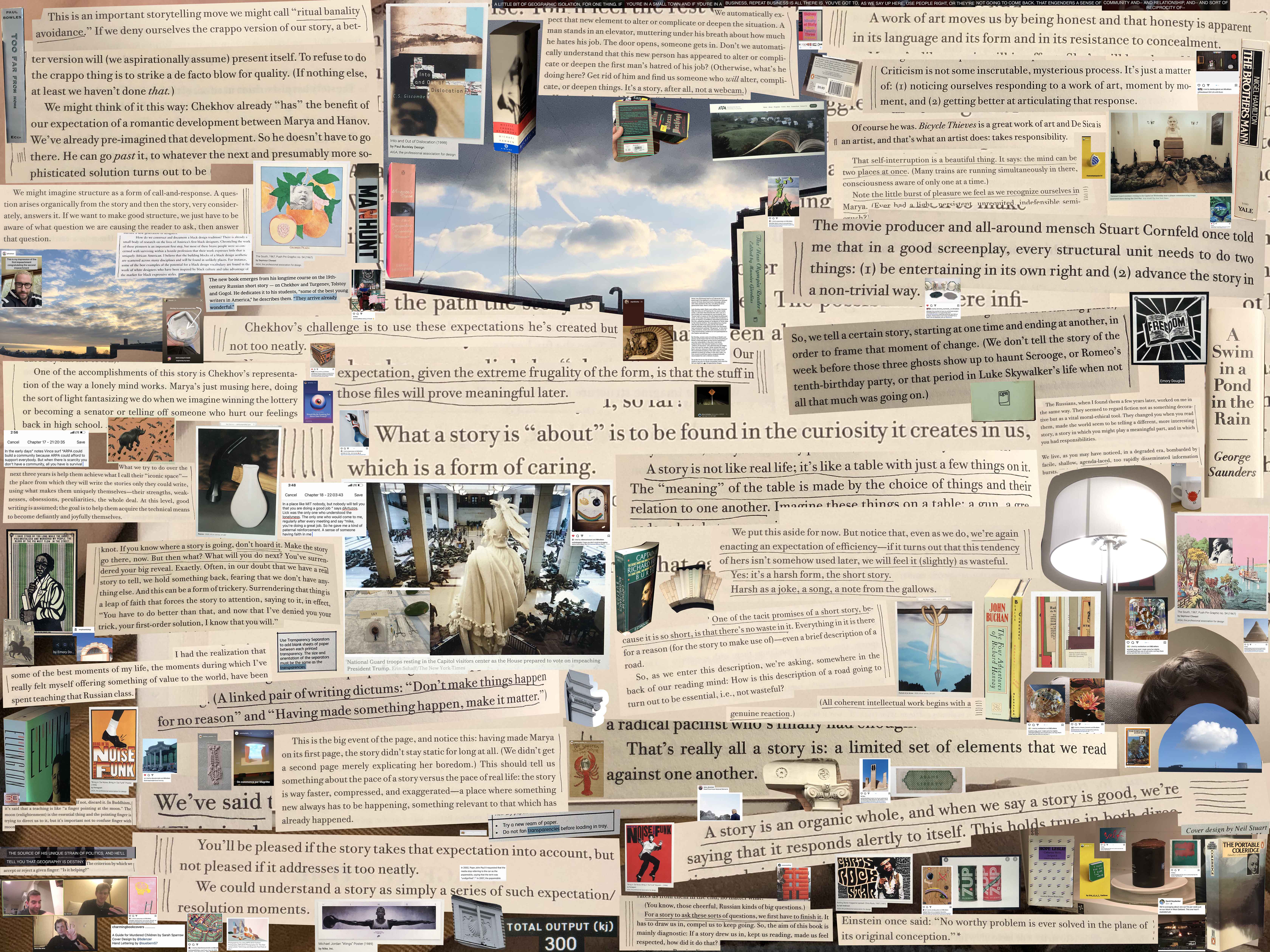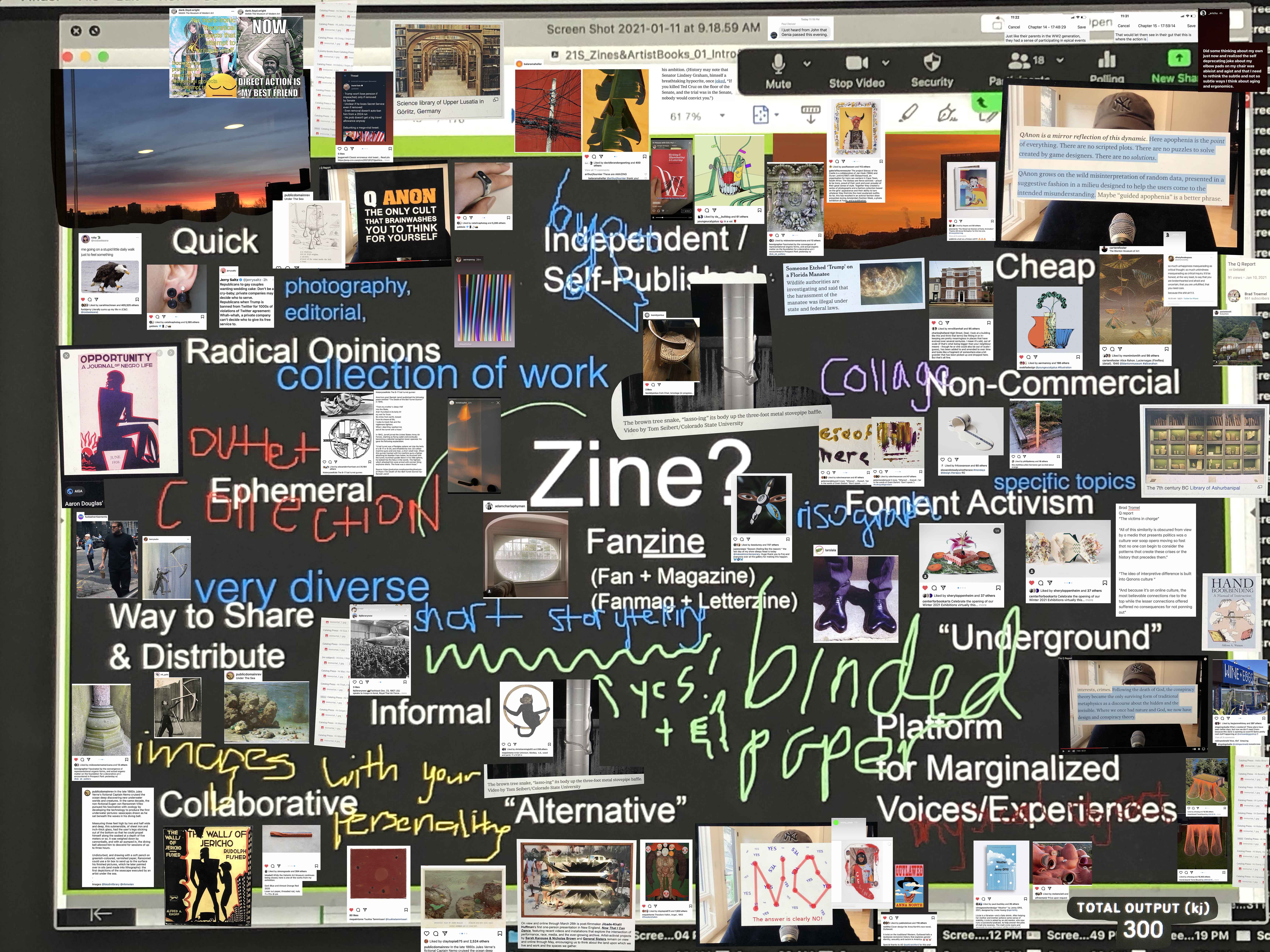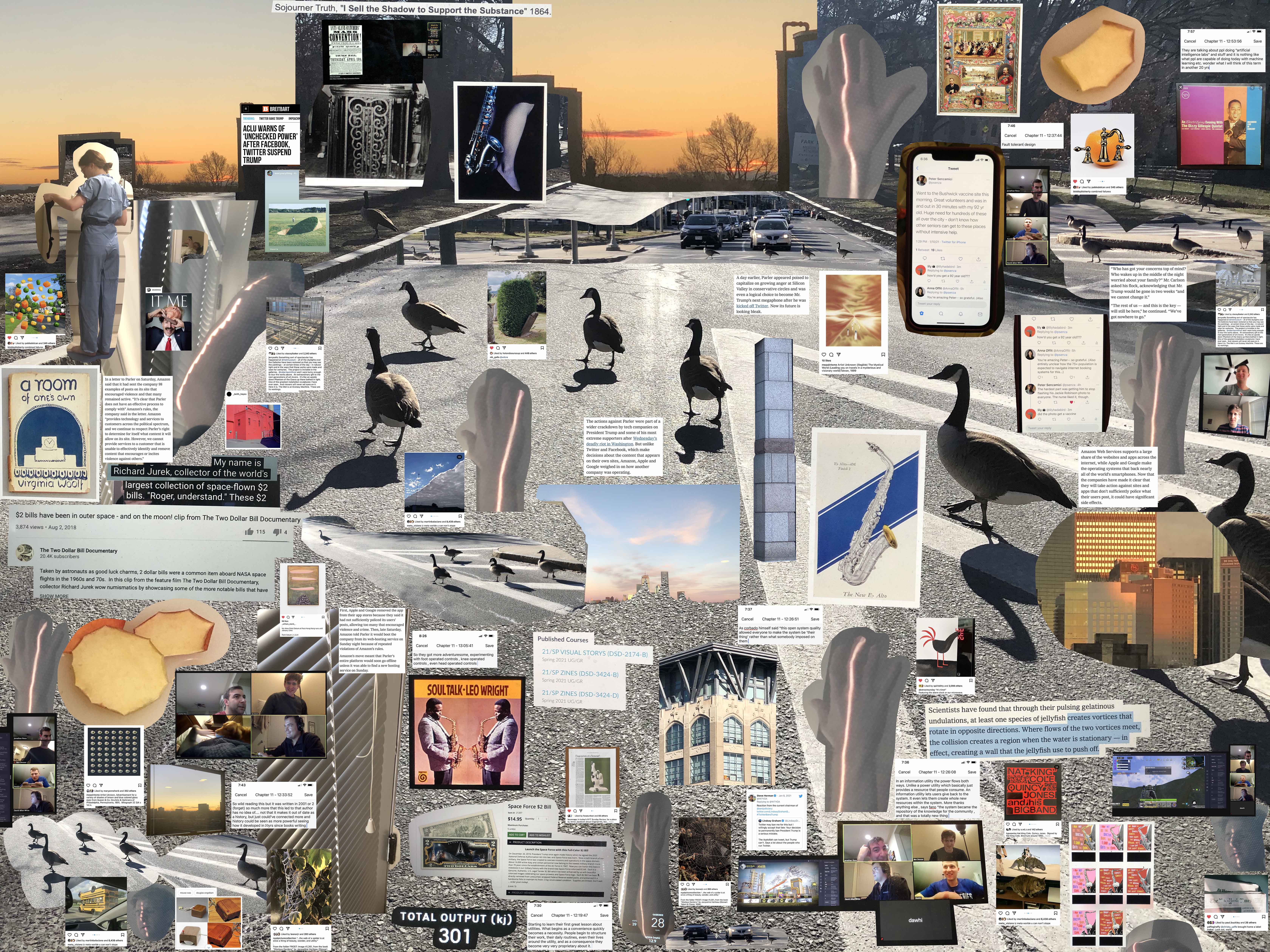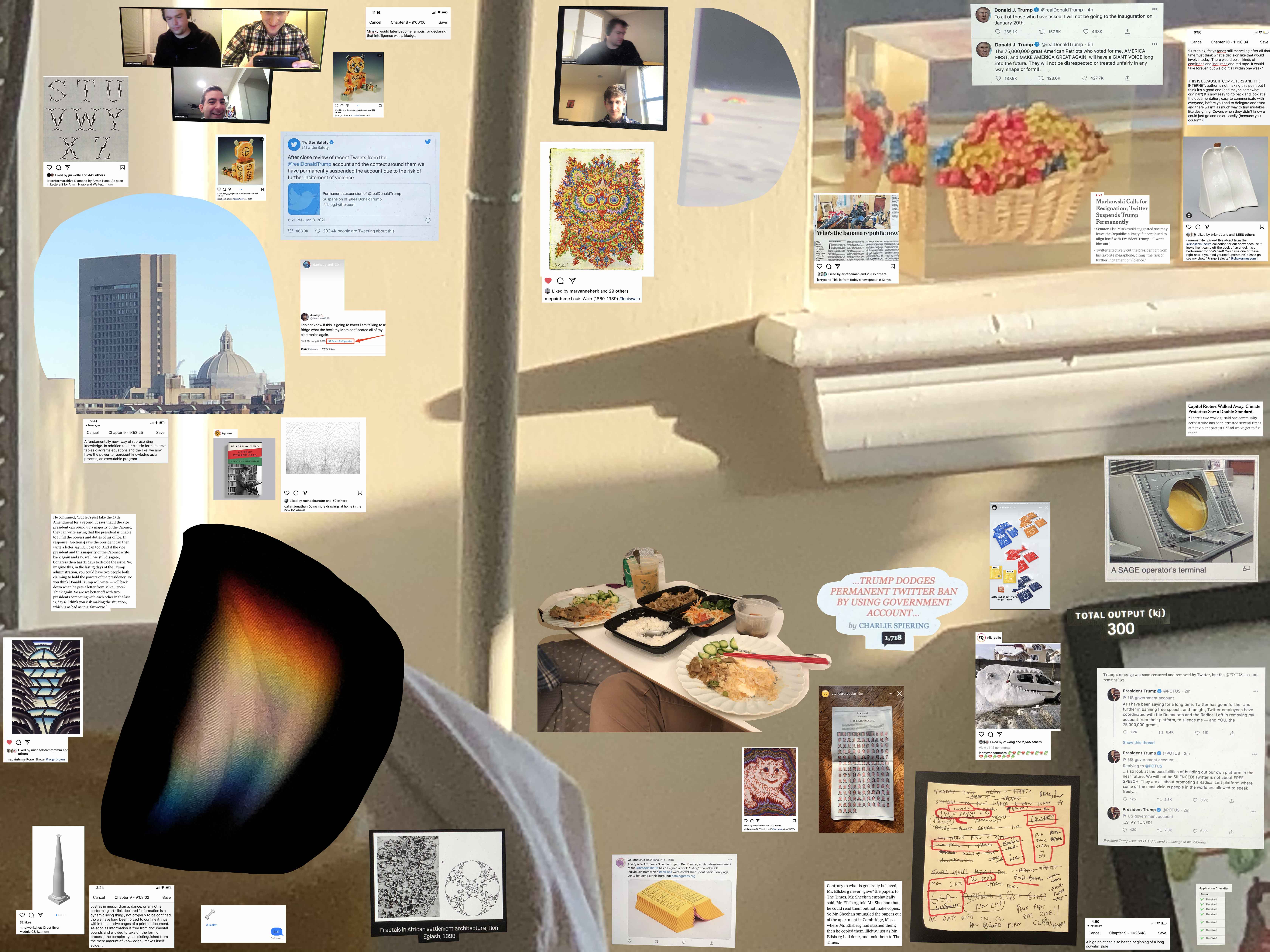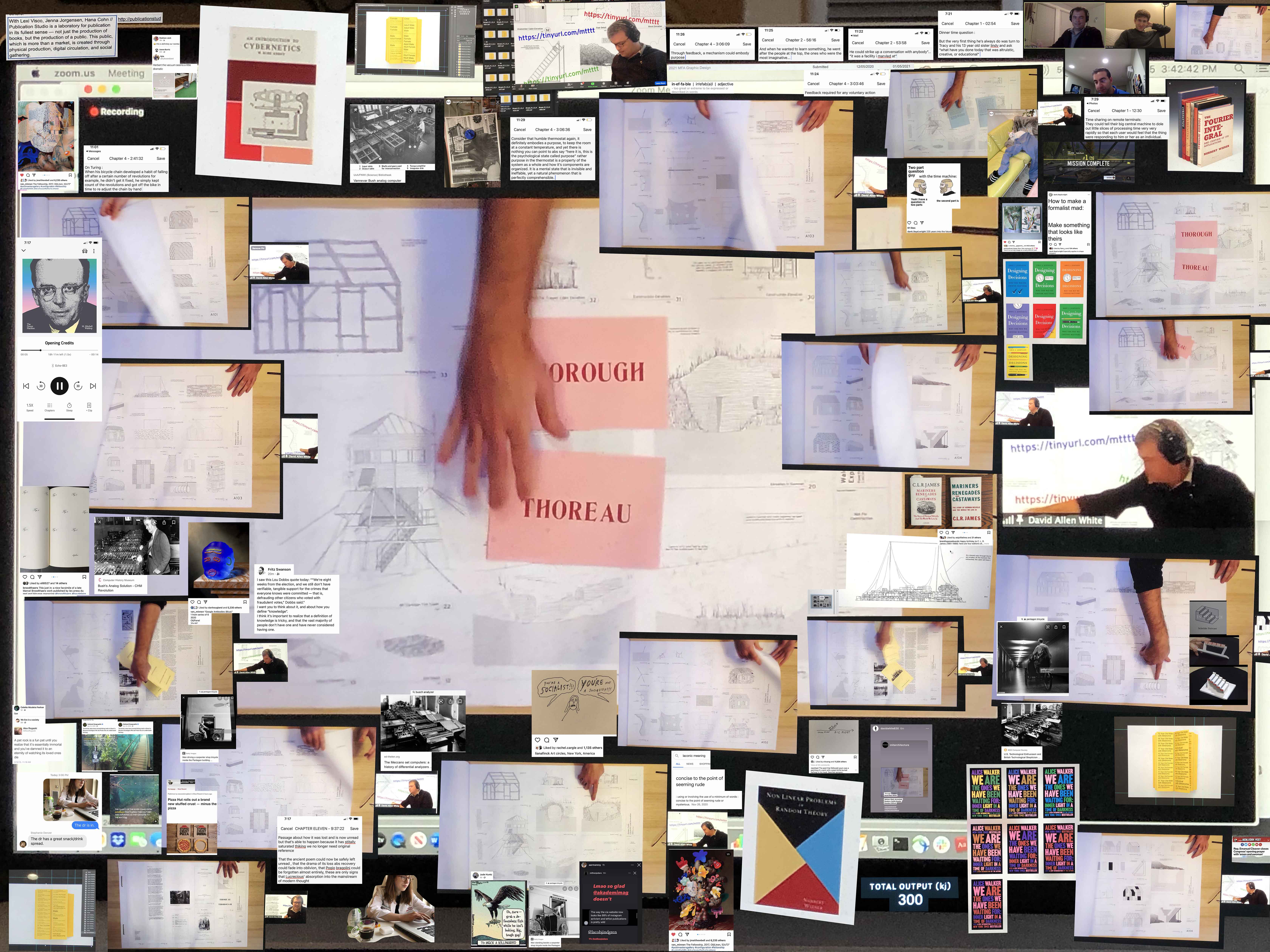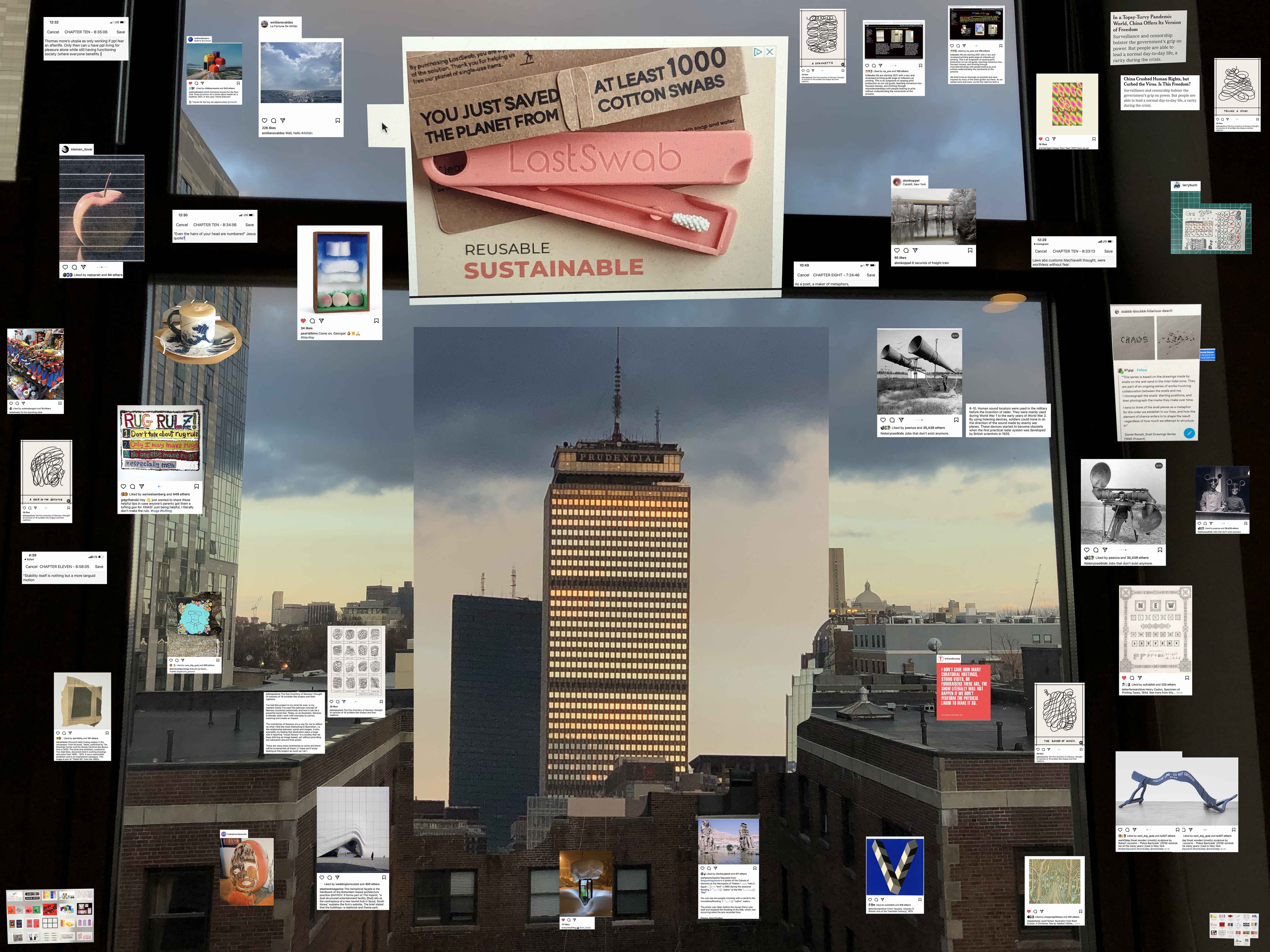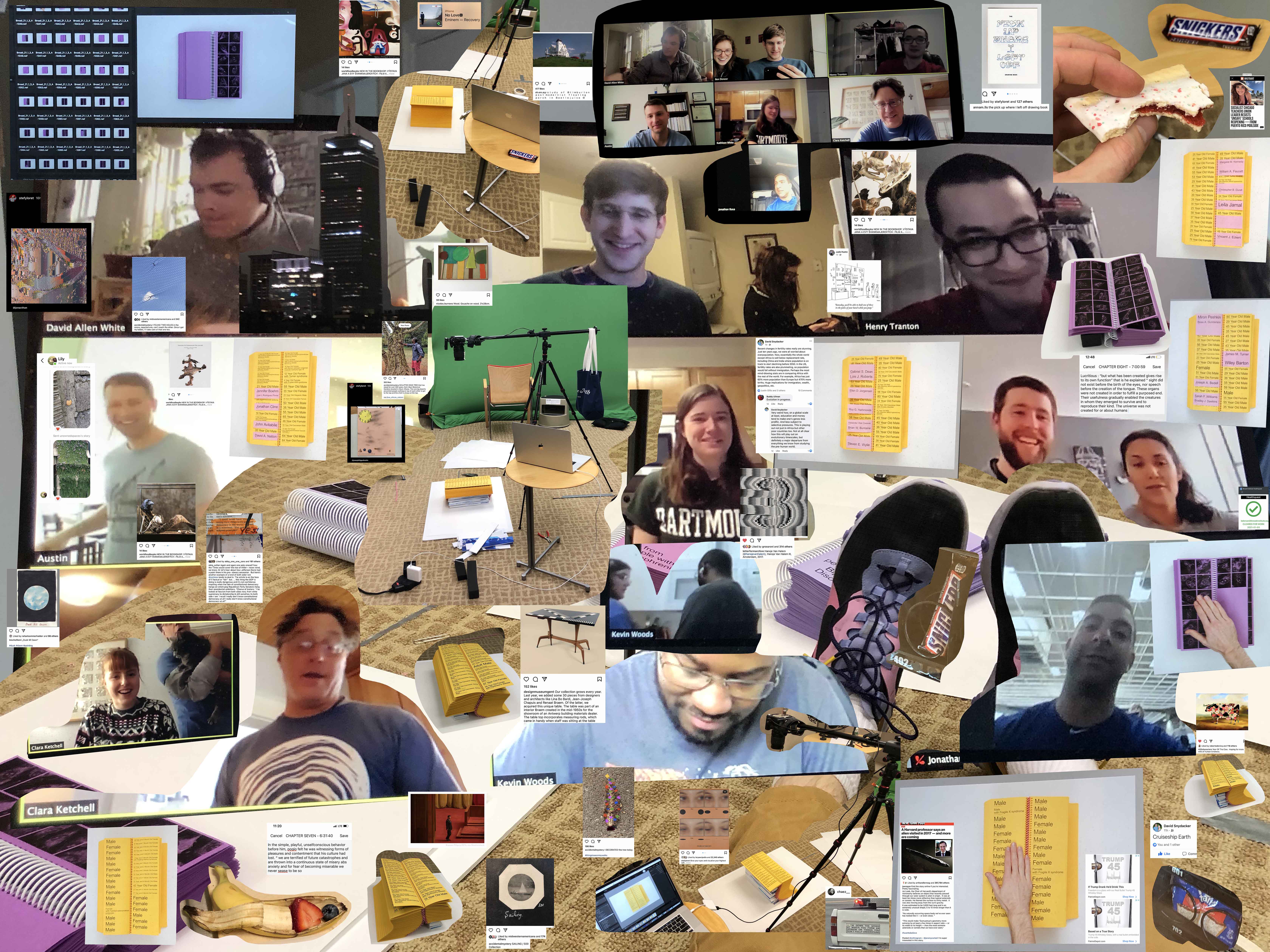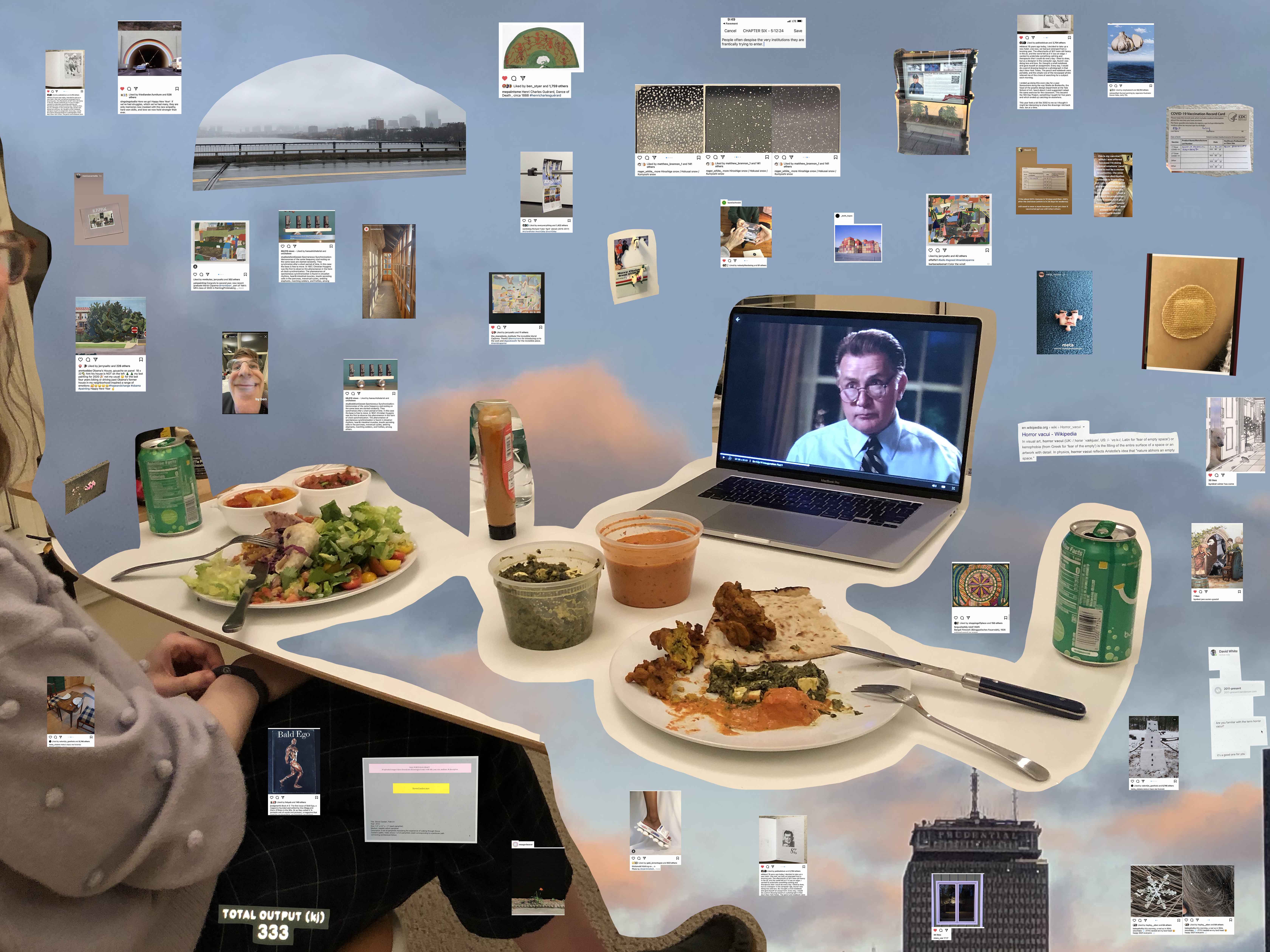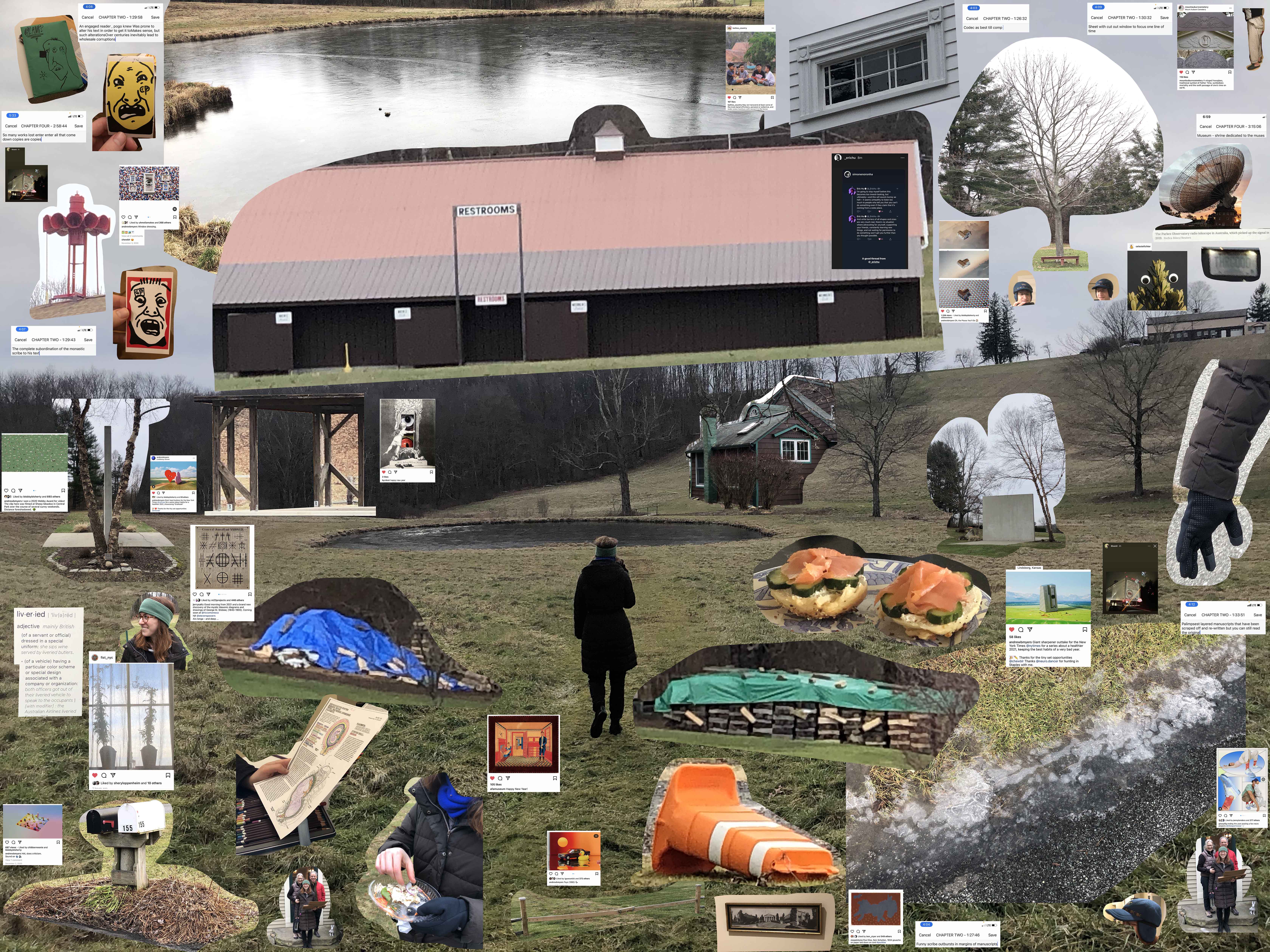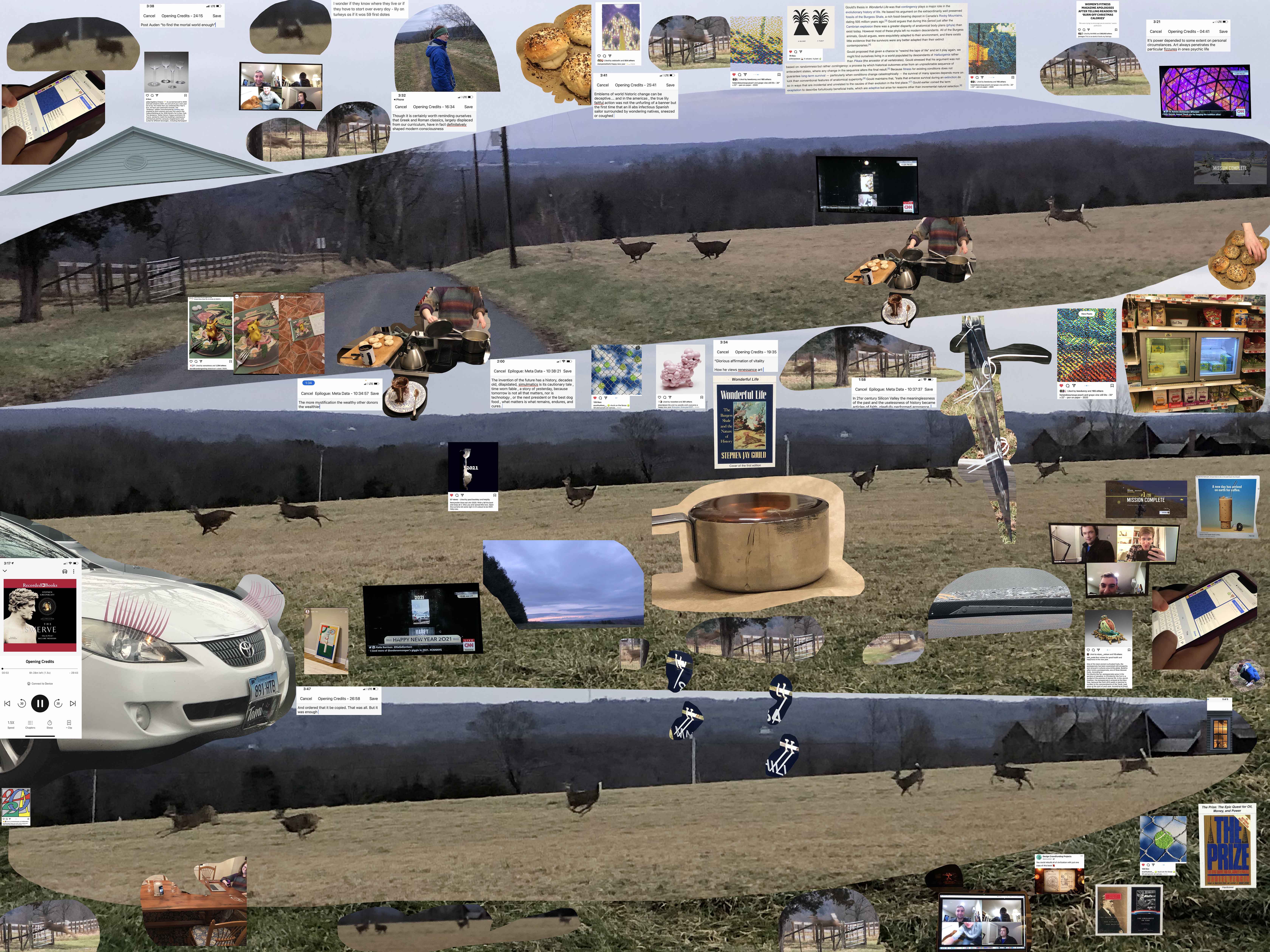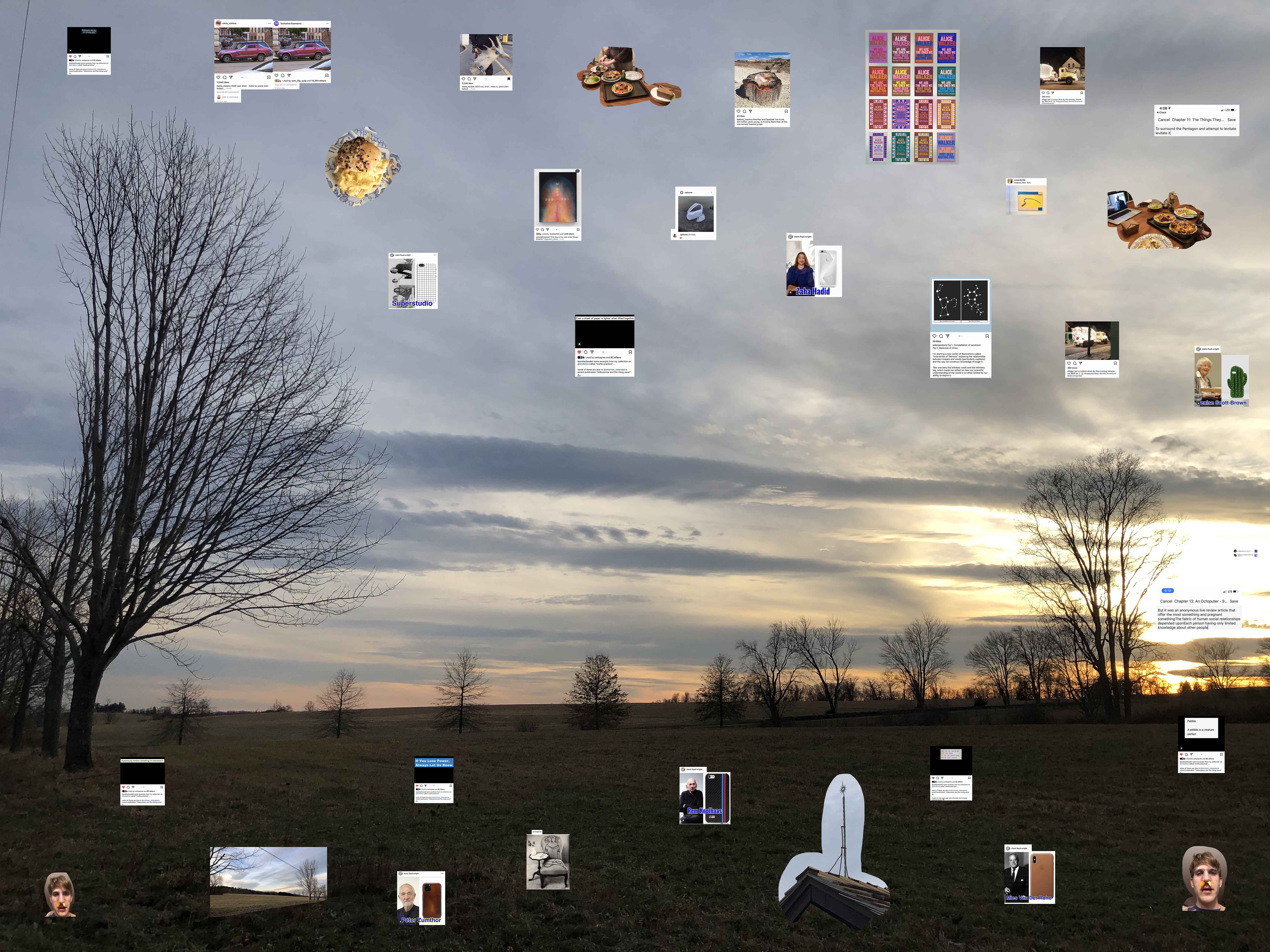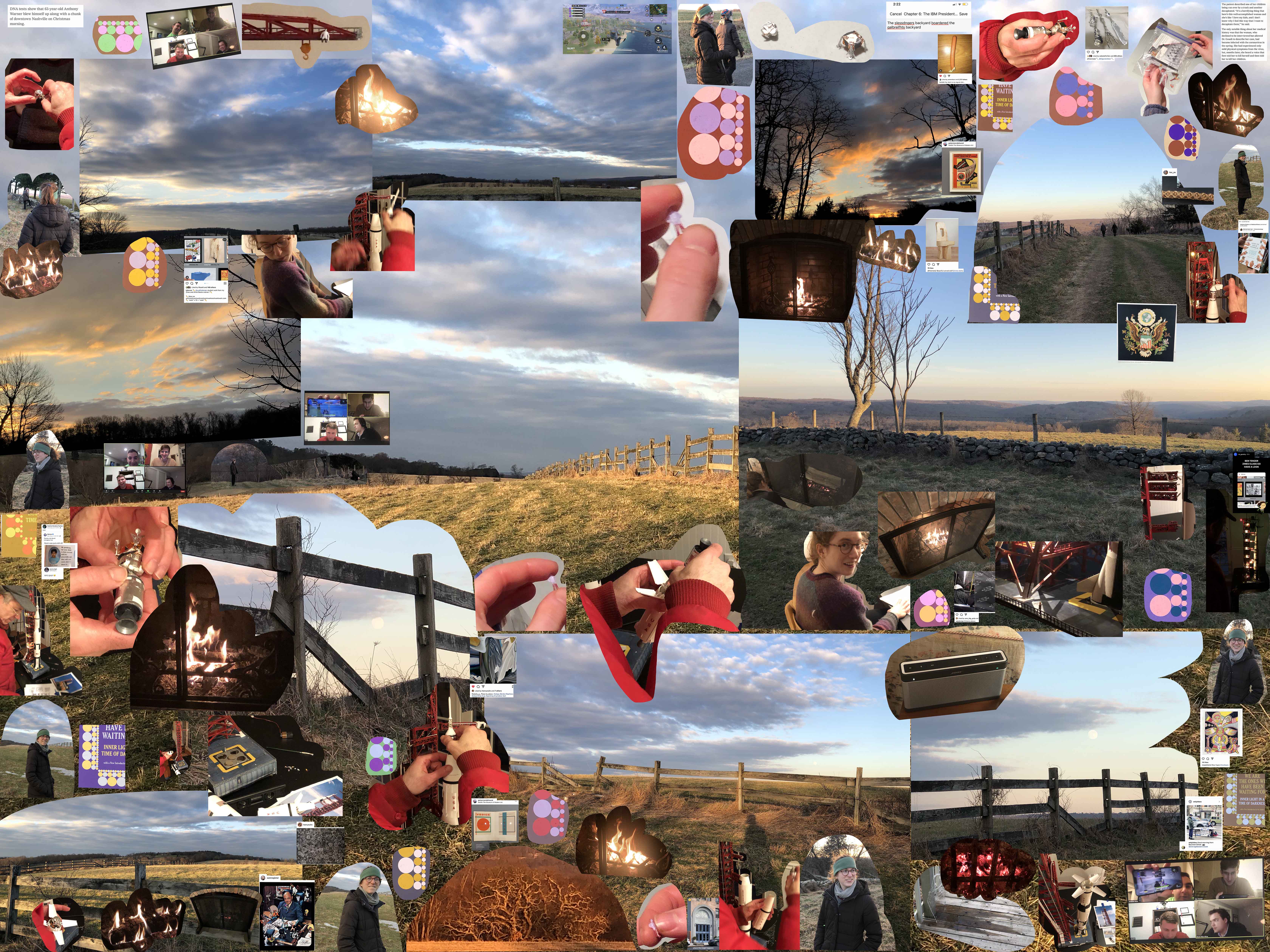Friday, January 15, 2021
Technology isn't destiny, no matter how inexorable its evolution may seem; the way its capabilities are used is as much a matter of cultural choice and historical accident as politics is, or fashion.
— M. Mitchell Waldrop, The Dream Machine: J.C.R. Licklider and the Revolution That Made Computing Personal
Thursday, January 14, 2021
When you're over 40, your age becomes a protected class.
— New School Title IX coordinator
Wednesday, January 13, 2021
For a story to ask these sort of questions, we first have to finish it.
— George Saunders, A Swim in a Pond in the Rain
Tuesday, January 12, 2021
I remembered Aldus Manutius, who 40 years after the printing press, put the book into its modern dimensions by making it fit into saddle bags.
— Alan Kay via M. Mitchell Waldrop, The Dream Machine: J.C.R. Licklider and the Revolution That Made Computing Personal
Monday, January 11, 2021
And because it’s an online culture, the most believable connections rise to the top while the lesser connections offered suffered no consequences for not panning out.
— Brad Troemel, "The Q Report"
Sunday, January 10, 2021
My name is Richard Jurek, collector of the world's largest collection of space-flown $2 bills.
— "$2 bills have been in outer space - and on the moon! clip from The Two Dollar Bill Documentary," YouTube
Saturday, January 9, 2021
It's like air hockey.
— Lily on shooting Mini Cheese Sandwich Crackers into my mouth
Friday, January 8, 2021
Just as in music, drama, dance, or any other performing art, Lick declared, “information is a dynamic living thing, not properly to be confined (though we have long been forced to confine it thus) within the passive pages of a printed document. As soon as information is freed from documental bounds and allowed to take on the form of process, the complexity (as distinguished from the mere amount) of knowledge makes itself evident."
— M. Mitchell Waldrop, The Dream Machine: J.C.R. Licklider and the Revolution That Made Computing Personal
Thursday, January 7, 2021
There is only one credible explanation for why the Capitol Police failed to prepare appropriately or to respond forcefully to the mob that descended on the building on Wednesday afternoon, Masha Gessen writes: it is that they did not take them seriously, which is to say, did not fear them.
— @newyorkermag, "THE CAPITOL INVADERS ENJOYED THE PRIVILEGE OF NOT BEING TAKEN SERIOUSLY: An armed mob storming Congress seemed familiar enough to authorities to be dismissed as clowns."
Wednesday, January 6, 2021
Here's what Abraham Lincoln said. "Fellow Americans, we cannot escape history. We of this congress and this administration will be remembered in spite of ourselves. No personal significance or insignificance can spare one or another of us."
— Angus King Jr., Senate Debate on Arizona Electoral College Vote Challenge
Tuesday, January 5, 2021
Think about it, and about how you define ”knowledge”. I think it’s important to realize that a definition of knowledge is tricky, and that the vast majority of people don’t have one and have never considered having one.
— Fritz in Facebook post*
Monday, January 4, 2021
Even the hairs of your head are all numbered.
— Jesus, Matthew 10:29-30 via Stephen Greenblatt, The Swerve: How the World Became Modern
Sunday, January 3, 2021
Lucretius acknowledged, but “what has been created gives rise to its own function.” That is, he explained, “Sight did not exist before the birth of the eyes, nor speech before the creation of the tongue." These organs were not created in order to fulfill a purposed end.
— Stephen Greenblatt, The Swerve: How the World Became Modern
Saturday, January 2, 2021
Are you famliar with the term horror vacui?
— David
Friday, January 1, 2021
An engaged reader, Poggio knew, was prone to alter his text in order to get it to make sense, but such alterations, over centuries, inevitably led to wholesale corruptions. It was better that monastic scribes had been forced to copy everything exactly at it appeared before their eyes, even those things that made no sense at all.
— Stephen Greenblatt, The Swerve: How the World Became Modern
Thursday, December 31, 2020
Gould argues that during this period just after the Cambrian explosion there was a greater disparity of anatomical body plans (phyla) than exist today. However most of these phyla left no modern descendants. All of the Burgess animals, Gould argues, were exquisitely adapted to their environment, and there exists little evidence that the survivors were any better adapted than their extinct contemporaries.... Gould stressed that his argument was not based on randomness but rather contingency; a process by which historical outcomes arise from an unpredictable sequence of antecedent states, where any change in the sequence alters the final result. Because fitness for existing conditions does not guarantee long-term survival — particularly when conditions change catastrophically — the survival of many species depends more on luck than conventional features of anatomical superiority. Gould maintains that, "traits that enhance survival during an extinction do so in ways that are incidental and unrelated to the causes of their evolution in the first place." Gould earlier coined the term exaptation to describe fortuitously beneficial traits, which are adaptive but arise for reasons other than incremental natural selection.
— "Wonderful Life (book)," Wikipedia
Wednesday, December 30, 2020
But it was an anonymous law review article that offered the most poignant and prescient warning: “The fabric of human social relationships, dependent upon each person's having only limited knowledge about other people"
— Jill Lepore, If Then: How the Simulmatics Corporation Invented the Future
Tuesday, December 29, 2020
By 1960, anyone who wanted to find out what had happened over the course of the day could watch the evening news on television. It was easy to perceive this as a race, in which case, the best strategy is: speed up. But the best newspapers realized that it really wasn't a race, and that the newspapers' best strategy would be: go deeper... No longer merely chronicling events but instead investigating and analyzing them
— Jill Lepore, If Then: How the Simulmatics Corporation Invented the Future
Monday, December 28, 2020
The Schlesingers' backyard bordered the Galbraiths' backyard.
— Jill Lepore, If Then: How the Simulmatics Corporation Invented the Future
Sunday, December 27, 2020
Rabbit book
— Google suggested search term "based on your recent activity" after I typed "Rabbit"


